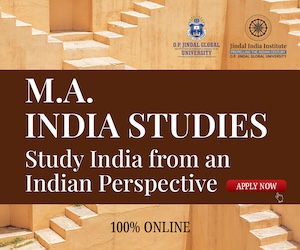The Role of Reason in the Northern Ireland Peace Process
What is deemed ‘reasonable’ is not abstract and objective, but malleable. Due to this conflicting definition of what was ‘reasonable’, it became impossible for the warring sides to be reconciled.
Are Large Companies at the Heart of a New Form of Transnational Hegemonic Order?
The propagation of liberal economic policies by states, particularly the US, paved the way for the globalisation of finance and production which enabled Transnational Corporations (TNCs) to share power with states and other actors. States are no longer the only important actors domestically or internationally.
The uses and misuses of psychological practices in order to achieve national security objectives
In recent years, there has been an increase in interest in how Security Services around the world operate. The interrogation of prisoners and claims of torture by certain agencies have been widely condemned. Being able to demand Fairtrade chocolate has led many to believe that there is a possibility of Fairtrade intelligence and national security
Population Exchange and Identity Formation: The Case of Post-Partition India
The close association of population exchange and identity formation has been particularly evident in the case of India. Its independence and partition created two states and peoples, thus redefining the concepts of ‘us’ and ‘them’ in the region. This pivotal event, having ensued more than six decades ago, continues to determine the dynamics of inter-state relations in the subcontinent and impact upon national identities
Does Regionalism Challenge Globalization or Build Upon It?
Whilst the globe may be ‘shrinking’ with the advancement of technology and increasing interdependence, numerous weaknesses and unaddressed atrocities remain lay within the system of ‘globalized’ international relations. This paper argues that in response to the many faults the system of ‘globalization’ contains, a new form of regionalism has arisen in the world to address what global multilateralism can not.
A Study of Self-Help in Anarchic International Systems
The debate between “rationalists” and “reflectivists” has emerged as a central axis of contention in International Relations (IR) theory. Rationalists treat sovereign states as rational, self-regarding units, leading both Neorealists and Neoliberal Institutionalists to conclude that anarchic conditions create a “self-help” international system. Reflectivists, a broad church that includes postmodernists, critical theorists, and other anti-positivists, see no automatic link between anarchy and self-help.
Elites vs. Institutions in Peacemaking
In the contemporary world, the role of elites is crucially important in every political system and every phase of state development, and forms the deciding factor in settling ethnic conflicts and post-conflict reconstruction. This paper will be based on two recent conflicts, Northern Ireland and Bosnia and Herzegovina, culminating in the Good Friday Agreement and Dayton Accords, respectively.
The status of women as a key indicator of modernity in Muslim society
Using women’s status as an indicator for the level of modernity achieved in non Western Muslim societies can set up a vicious circle that reinforces an orientalist bias. Such an evaluation is often affected by a belief that secular-liberal regimes hold a more favourable stance towards women. In addition, some Western feminist scholars have developed an approach that exasperates this dynamic
Terrorism’s Path: The Protection of the People in the Violence of our Era
This paper is an investigation on the conflict of our generation. From the ashes of the War on Terror arises the need to not only investigate the course of our actions, but also our understanding of those forces and phenomena to which we are committing both blood and treasure.
The US Victory in the Cold War: Economic Strength, Foreign Policy Triumph or Both?
The economic strength of the US alone was not enough to secure victory, and the US foreign policy was frequently counter-productive. But when the disparity in economic strength was utilised by the US foreign policy it enabled the US to have a clear advantage over its enemy and negotiate from a position of strength











